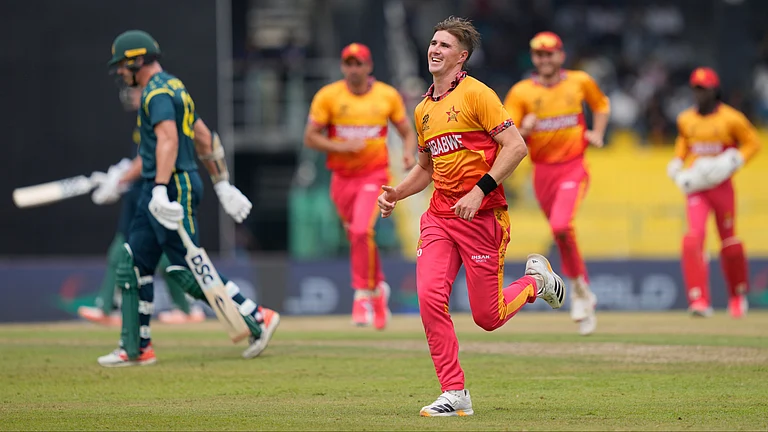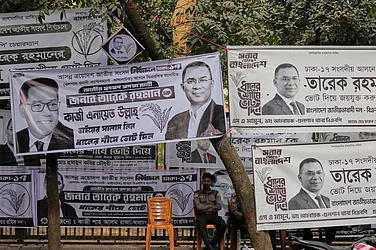Ahead of his three-day visit to India, which commences on Tuesday, United Nations Secretary General António Guterres said in an interview with PTI that he fully supports Prime Minister Narendra Modi’s remark to Russian President Vladimir Putin that this is "not an era of war", emphasising that all efforts towards creating conditions for a solution to the Ukraine conflict under the UN Charter and international law will be "very much welcomed."
He also expressed hope that India's G20 presidency in 2023 will allow for the creation of effective systems of debt restructuring, warning that the developing countries are facing a "perfect storm" amid the impact of the pandemic and increased food and fuel prices due to the Ukraine conflict.
Additionally, he backed the developing world, including India’s stance on climate finance and adaptation, noting that developed countries must fully assume their commitments, not just the USD 100 billion per year target for climate finance that is not yet met but also the need to have at least half of climate finance on adaptation. Here’s all you need to know from the interview!
Ukraine War
In a comment to PTI ahead of his India tour, Guterres said he is "very concerned” with escalation in the Russia-Ukraine war, “especially when escalation causes a large number of civilian victims, obviously it only worsens what is already a very difficult situation."
"I think that what" Prime Minister Modi "said to Russian President Putin that this is not the time for war is absolutely true. No time is the time for war. But this time in particular is not the time for war. So, I fully support that,” Guterres said.
"And of course, all efforts that can be made in order to create conditions for a solution, a solution in respect of the UN Charter and international law, will be very much welcome,” Guterres said ahead of his three-day visit to India starting Tuesday.
Russian President Putin ordered a "special military operation" against Ukraine on February 24. The raging conflict has further heightened economic stresses, especially on food and energy. While India has remained largely neutral in the conflict so far and has continued importing crude oil from Russia in the last nine months, besides abstaining from several UN resolutions condemning the Kremlin’s actions, recent escalations have sparked concerns.
During a bilateral meeting with President Putin on the sidelines of the annual summit of the Shanghai Cooperation Organisation (SCO) in Samarkand in September, Prime Minister Modi underlined the importance of “democracy, dialogue and diplomacy” while calling for an early cessation of hostilities in Ukraine. "I know today's era is not of war. We discussed this issue with you on phone several times, that democracy, diplomacy and dialogue touch the entire world,” Modi had said in his first in-person meeting with Putin since the Ukraine conflict began in February.
Early this month, Modi had a telephonic conversation with President of Ukraine Volodymyr Zelenskyy, during which he had “expressed his firm conviction that there can be no military solution to the conflict and conveyed India’s readiness to contribute to any peace efforts.”
Discreet diplomacy underway: Gueterres
When asked if conversations around the Ukraine war are expected to come up during his interaction with the Indian leadership during his visit to the country, Guterres said “we have been very active in a very discreet way, because I don't believe in megaphone diplomacy”.
"I believe that discreet diplomacy still has an important role to play and we've been very active in trying to explore all forms to minimise the suffering of the people in Ukraine and to minimise the suffering of people around the world,” he said.
He referred to the efforts for the release of civilians from Azovstal, agreement in relation to the Black Sea initiative for exports of Ukrainian food, as well as the Memoranda of Understanding with Russia in "which we are doing everything to make sure that Russian food and fertilizers have unrestricted access to world markets and that the collateral damage of sanctions, even if the sanctions do not apply to food and fertilizers, is entirely removed.”
India’s G20 Presidency should aid debt relief
India will assume the Presidency of the G20 for one year from December 1, 2022 to November 30, 2023.
Stressing that "Developing countries are now facing a perfect storm,” the UN Chief told PTI that he “very strongly” hopes that the presidency of India of the G20 “will allow for the creation of effective systems of debt restructuring and debt relief for the possibility of multilateral development banks to be able to do concessional funding to middle income countries that are particularly vulnerable…to make sure that multilateral development banks assume a multiplying effect, which means mobilise through guarantees, accepting to be the first risk-takers.”
Financial crisis in developing world: Sri Lanka and Pakistan
Guterres noted that during the COVID pandemic, vaccines were not distributed equally and then resources for recovery were very different in developed countries that have the capacity to print trillions of dollars. "Developing countries cannot print money, their currencies will immediately sink. On the other hand, we are seeing dramatic problems of debt - larger and larger numbers of countries on the verge of debt collapse," he said, as countries like Sri Lanka and Pakistan are facing unprecedented financial turmoil.
"And with the dramatic increases in prices of energy, food largely expanded by the war in Ukraine, we are now seeing countries in the developing world without any fiscal margin of maneuver to attend to the needs of their people. Not to mention the sustainable development goals in which we are moving backwards,” he said.
Against this backdrop, Guterres called for reform of the international economic and financial system, adding that for this the G20 leadership will be essential. Under its Presidency, India is expected to host over 200 G20 meetings, beginning December 2022. The G20 Leaders' Summit at the level of Heads of State and Government is scheduled to be held on September 9-10 next year in New Delhi.
Climate finance and adaptation key issues at COP27
Guterres underscored the importance of supporting developing countries in these difficult times and in creating conditions for sustainable development. On climate action, Guterres said it is essential that developed countries fully assume their commitments, not just the USD 100 billion per year target for climate finance that is not yet met but also the need to have at least half of climate finance on adaptation.
He stressed the need to support increasing capital of multilateral development banks “to better support developing countries”, particularly in their green transition and to be able to adapt to the devastating consequences of climate change. "Unfortunately, those that are suffering more are not those that pollute more,” he lamented.
Reducing fossil fuel dependency: War on Climate
Guterres said on the other hand “we need to have a historical pact between developed countries and emerging economies like India because we need to reduce emissions”, which are growing.
Noting that developing countries naturally have their own needs of providing electricity to their population, of responding to their development perspectives “that they want to maintain in a very legitimate way”, Guterres said these countries have a huge dependency on fossil fuels, namely on coal.
"This historic pact is something which I believe we need…to create true partnerships in which developed countries contribute with the financial resources and the technological support to allow emerging economies to accelerate their transition,” he said.
"That is essential. If we are not able to reduce emissions not only in developed countries but also in emerging economies, we will lose the war on climate with devastating consequences for everybody,” he said.
Guterres noted that India is a country that "unfortunately is already suffering a lot in relation to climate - the droughts and other impacts are absolutely dramatic.”
"I believe this is the moment in which the G20 countries, where you have all the developed countries, the biggest ones and all the biggest emerging economies, need an historical pact for joining efforts to make sure that in solidarity, we are able to successfully fight climate change,” he said.
As leaders and climate experts prepare to meet for the UN Climate Change Conference COP 27 in Sharm El Sheikh, Egypt in November, Guterres said he will do everything possible to contribute for COP27 to be a success in mitigation, in adaptation and in finance. "I think it is the moment to make loss and damage a central aspect of the discussion and the results of the COP27.”
(With inputs from PTI)


























